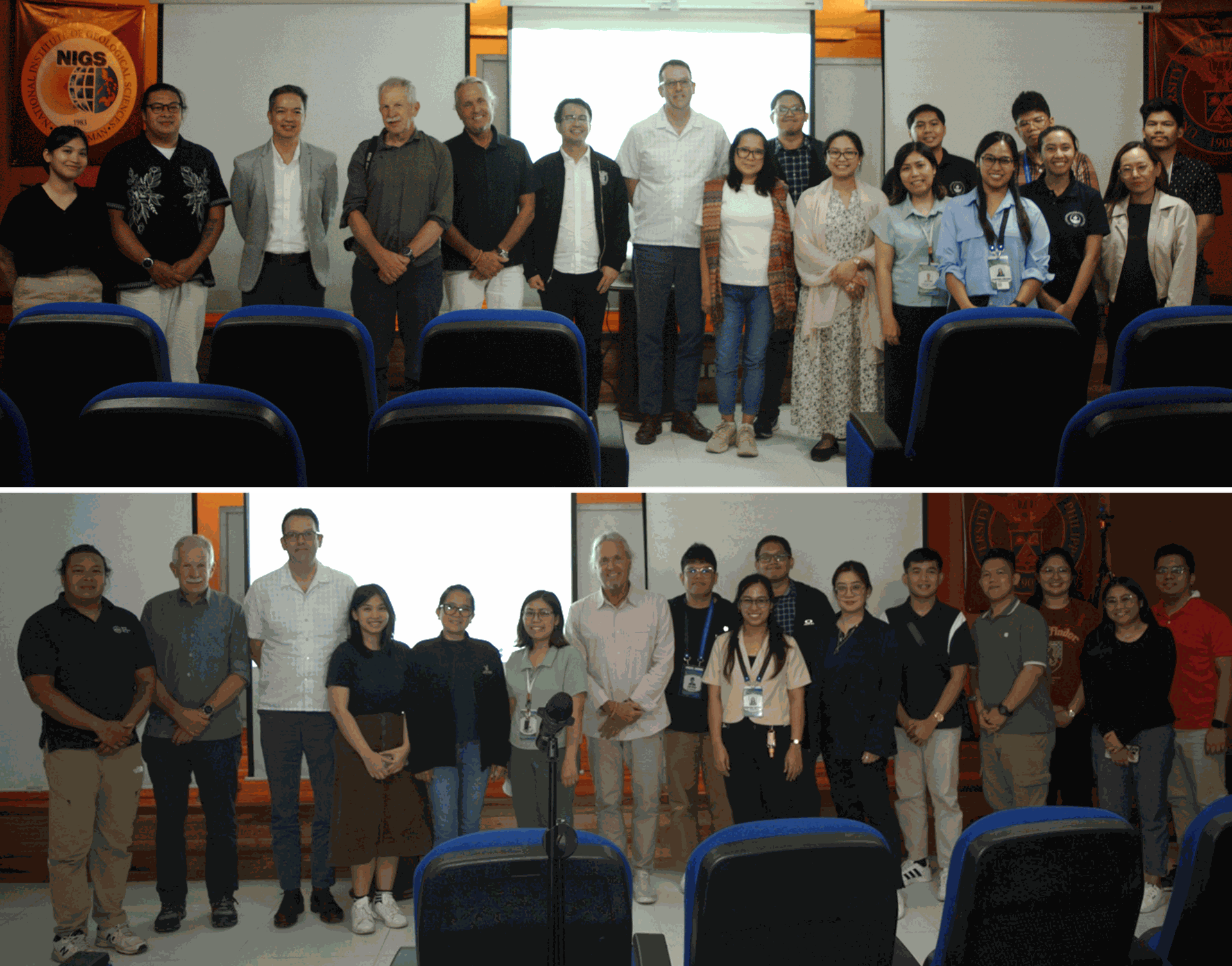The UP-NIGS Environment Monitoring Laboratory (EML) organized the Philippine Hydro Hub Conference and Workshop. The conference was held on May 6, while the workshop took place on May 8. Both events were conducted in a hybrid format, on-site at the NIGS Audio-Visual Room and online via Zoom.
The events were attended by academics and researchers from the UP Institute of Environmental Science and Meteorology, the UP Institute of Civil Engineering, Tarlac Agricultural University, and Isabela State University. Officials and staff from several government agencies also participated, including the Department of Environment and Natural Resources, Mines and Geosciences Bureau, Local Water Utilities Administration, Department of Agriculture Bureau of Soils and Water Management, Department of Public Works and Highways Bureau of Design, National Research Council of the Philippines, and the British Embassy. Representatives from MAYNILAD, WatSan Analytics, and Orani Water District also joined the events.

(top) Photo op at the end of the days showing on-site participants of the Philippine Hydro Hub Conference and (bottom) Workshop.
The conference featured a series of presentations on recent hydrological research conducted by participating institutions. The workshop focused on challenges in water resource management and explored how recent research could help address these issues. On both days, representatives from the British Geological Survey presented their hydrological model of the Philippines, the VIC-AMBHAS model, which initiated discussions on how this tool could advance research and improve water management strategies. Afternoon sessions on both days included ‘roundtable’ discussions related to the day's themes, with particular attention given to data accessibility and collaboration.
The 2-part event is under the research project titled “Philippine Hydro Hub: Collaborative Hydrological Research for a Sustainable Water Future.” It is a collaboration among UP-NIGS (through the Environmental Monitoring Laboratory), Ateneo de Manila University, and the British Geological Survey. The project is funded by the UK Department for Science, Innovation and Technology’s International Science Partnerships Fund, in partnership with the British Council. It aims to support a sustainable water future for the Philippines by promoting the collaborative use of cutting-edge hydrological science among researchers and stakeholders.